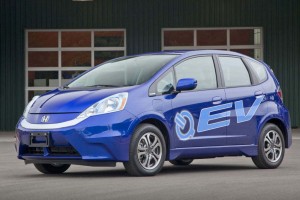Could battery cars speed up the pace of global warming? That’s the unexpected twist to emerge from a new study that warns that electric vehicle technology is far more energy-demanding during production and can actually result in more CO2 emissions during operation than conventional vehicles.
The results of the new study could enflame the debate over the value of electric propulsion – and the costly subsidies that governments around the world are offering. On the other hand, proponents, including many environmental groups, contend the new report and similar previous studies, overstate the downside of battery power.
“Electric vehicles consistently perform worse or on par with modern internal combustion engine vehicles, despite virtually zero direct emissions during operation,” wrote co-author Anders Hammer Stronman, of the Norwegian University of Science and Technology.
The study echoed other critics’ concerns that battery cars simply displace pollution, rather than eliminating it – moving it from the tailpipe to the smokestack. The big issue is what source of electricity is used to power electric vehicles. If it comes from carbon-intense fossil fuels like coal, that is a negative for the environment, according to the Norwegian University report.
A similar study, jointly released earlier this year by the University of Tennessee, University of Minnesota, and China’s Tsinghua University, similarly concluded that “clean cars and dirty coal don’t mix.”
(For more on that report, Click Here.)
According to the latest study’s co-author Prof. Stronman told the BBC, “It is counterproductive to promote electric vehicles in regions where electricity is primarily produced from lignite, coal or even heavy oil combustion.”
But the Norwegian report raises other concerns. It contends that the lightweight materials, such as aluminum, used extensively in electric vehicles – as well as the compounds making up their batteries – require far more energy to produce.
In other words, compared to a conventional automobile, the report cautioned, “The production phase of electric vehicles proved substantially more environmentally intensive.”
That argument was raised in several other studies, as well, including one, dubbed “Rust to Dust,” designed to track the energy used from the pre-production stage all the way through to vehicle recycling. Produced by Oregon-based CNW Marketing, it also found battery cars highly energy intensive despite their image as green.
Added to the estimated emissions of the typical electric generating plant, the study concluded that, “The global warming potential from electric vehicle production is about twice that of conventional vehicles.”
Critics question the new reports assumptions. Even the China study, released last February, cautioned that the impact of switching to electric power varies by region. It found in 68% of that country, dependence upon coal is so significant that electric vehicles were a net contributor to global warming gases – but in region around the Three River Gorge, where power is now largely generated by hydro, electric propulsion is a net plus.
And the fact that China has committed to adding 4,000 gigawatts of solar power to its grid over the next two decades, proponents contend, could further change the equation.
Asked about the Norwegian University study by the BBC, Dieter Zetsche, Chairman of Daimler AG – a big proponent of battery propulsion – argued that, “According to our results, a battery electric vehicle, with electricity produced by the power generation mix we currently have in Europe, compares favorably in the magnitude of 10% or so with diesel.”
(Daimler launches new Smart fortwo ED as lowest-priced battery car in the U.S. Click Here for more.)
In the U.S., meanwhile, a recent study by the Union of Concerned Scientists came to a largely different conclusion than the Norwegian University report.
While there are a few regions where coal power could be considered a disadvantage, The UCS found that 45% of Americans live in so-called “best” regions, where an EV puts out less emissions than a conventional gas-powered vehicle getting 50 mpg. In some places, such as California, the EV would out-perform an 80 mpg gas vehicle, it reported.
“This report shows drivers should feel confident that owning an electric vehicle is a good choice for reducing global warming pollution, cutting fuel costs, and slashing oil consumption,” said Don Anair, the report’s author and senior engineer for UCS’s Clean Vehicles Program.
The UCS study focused on the source of energy used in operating electric versus gas-powered vehicles. In a conversation with TheDetroitBureau.com, Anair addressed pollution created on the manufacturing side. Battery car manufacturing “is more energy intense,” he concurred, but he noted that with the use of recycled materials for the battery energy requirements fall sharply.
The same is the case with lightweight body materials, especially aluminum, where the energy needed to recast
“And even with the increase in manufacturing emissions,” he contends, unless you’re in one of the worst regions depending on dirty power generation, there’s ultimately an “advantage is in the operation of the vehicle” compared to a gas-powered car.
While a shift in the source of power could impact the cost/benefit relationship of electric propulsion, so could the battery technology a manufacturer uses. More advanced batteries capable of storing greater amounts of power will be a plus, according to the report. So will batteries that last longer. Make the same battery go for 200,000 miles instead of 100,000, it suggested, and you’ve effectively reduced by half the amount of pollution from the manufacturing process.
So, for those interested in switching to battery power, Prof. Stromman cautioned, it makes sense to check their local source of electricity – and the warranty on the battery.
But the report concluded that, “A more significant reduction in global warming could potentially be achieved by increasing fuel efficiency or shifting from petrol to diesel.”

